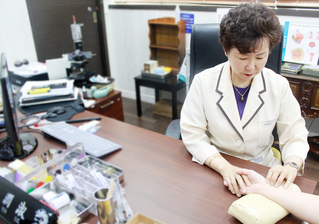Circulation of blood purifies and makes our body healthy.
Blood circulation is the flow of blood through the blood vessels in the tissues of the body, which is responsible for the physiological activity of the cells. Blood circulation is the basis of health
Clean blood is a measure of health
So what is blood?
Blood circulates through the blood vessels in the heart, tissues and cells in which the metabolic process takes place to maintain the vital activity of the whole organism.
It is also necessary to provide oxygen and nutrients to the cells of the body and to transport the final products of metabolism and carbon.
Blood circulation
Organs in the body, including the brain, can stop performing their function in a matter of minutes, if there is no blood supply, which can even become a great threat to life.
Let's look at the factors that cause circulatory disorders in our body.
What can interfere with normal blood circulation?
First, blood vessels can narrow or block, and blood viscosity may increase. All this because the blood accumulates bad substances such as cholesterol and triglycerides.
The accumulation of such substances in the body for a long time can cause atherosclerosis. The internal walls of the arteries lose elasticity, causing damage to the blood vessels, as well as their narrowing.
Secondly, hypertension and hypotension can also cause poor blood circulation.
Blood pressure is the pressure that blood exerts on the walls of blood vessels.
The higher the blood pressure, the greater the amount of blood fills the blood vessels, which makes blood circulation more difficult.
On the other hand, low blood pressure reduces the amount of blood in the blood vessels and prevents blood circulation.
Therefore, the main causes of circulatory disorders are:
△ Constriction and blockage of blood vessels
△ Increased blood viscosity
△ Low or high blood pressure
Therapy for cleansing the blood
1. Avoid a large set of weight, especially the accumulation of fat in the abdomen. When you gain weight, the percentage of fat in the body, of course, increases. In particular, fat accumulated in the abdominal cavity can accumulate in the liver, thus causing hyperlipidemia, hypertension, arteriosclerosis, heart disease and stroke.
2. It is necessary to reduce the consumption of foods high in fat, such as meat, and take unsaturated fatty acids.
Excessive intake of animal fat (saturated fatty acids), such as meat or fast food, can cause blood clots, atherosclerosis and obesity, increasing the level of triglycerides in the blood.
On the other hand, there are many unsaturated fatty acids, such as fish, walnuts, pine nuts and peanuts, which lower the level of cholesterol in the blood. Also unsaturated fatty acids are found in green vegetables and red fish.
3. Eat vegetable fiber.
Vegetable fiber regulates the absorption rate after eating and prevents rapid growth of blood sugar, also controls the level of cholesterol and cleanses the blood. Thus, plant fiber helps with hypertension, diabetes and hyperlipemia. In addition, it activates the function of the intestines and removes toxins, prevents the contamination of blood.
4. Regularly do aerobics.
Good exercises for blood circulation are aerobic exercises, such as walking, running, light climbing, swimming, etc.
Aerobic exercise increases cardiopulmonary function and helps blood circulation. It is important to choose the exercise that is right for you, and do it regularly.
5. Do not consume alcohol and tobacco products.
People who smoke have angina and myocardial infarction three times more likely than people who do not smoke. Excessive consumption of alcohol can also put pressure on the heart and increase blood pressure.
SH2 program
At the Seasun Clinic, the blood test is performed in three stages according to the SH2 recovery program, which is selected depending on the constitution and body shape, through the CDVD medical examination system, which is also one of the SH2 program systems.
* You can learn more about food and exercise from a professor at the Seasun Clinic.

